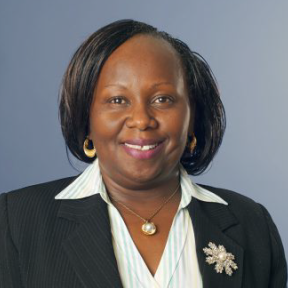The Montreal Protocol for Substances that Deplete the Ozone Layer is heralded as the most successful multilateral environmental agreement (MEA) in earth system governance with universal ratification. It showed that multilateralism and effective global cooperation worked and phased out 99 per cent of these gases. Now the ozone layer is on a path to recovery.
In 2016, the Montreal Protocol expanded its original mandate (protecting the ozone layer), to address powerful greenhouse gases inducing climate change. The Kigali Amendment created a strong link between ozone protection and climate and set a clear path in protecting our planet’s environment: by eliminating HFCs, up to 0.4 ºC of global warming could be avoided by the end of this century, while continued ozone protection is ensured.
The science-based decision-making process of the Montreal Protocol is also exemplary where it includes, in addition to the scientific assessment, a technology and economic assessment mechanism supported by several technical option committees that regularly, and over last 30 years, produce robust and impartial technology assessment reports about all sectors using controlled substances by the Montreal Protocol and its amendments.
Thanks to the unique political, financial, and technical structure of the Montreal Protocol, refrigeration, air-conditioning, and heat-pumps industry evolved rapidly over the last three decades deploying zero-ODP (ozone depleting potential) and lower-GWP (global warming potential) substances and products in markets worldwide. In the last few years, the linkage with energy efficiency became inevitable dimension to ensure that moving away from ozone-depleting substances or high-GWP ones doesn’t come at the cost of more carbon emissions due to inefficient products. The advancement of the cooling sector has also become connected, most recently, with some strategic topics to the international community such as food security, health, and digital transformation.
While focussing on the availability and feasibility of the cooling sector state-of-art technologies, the human dimension shouldn’t be overlooked. UNEP, through its OzonAction programme, started few years back an endeavour to address the gender equality issue within the cooling sector. Gender mainstreaming is becoming more attended and better structured now within the Montreal Protocol family including incorporation in the projects supported by the Multilateral Fund (MLF) as well the launching of several special initiatives as part of UNEP clearinghouse mandate.
UNEP seeks to overcome the triple planetary crisis of climate, of nature loss, and of pollution and waste. The Montreal Protocol and its Kigali Amendment stand ready to provide more: continuing to protect all life on Earth, creating a cooler environment, safeguarding biodiversity to help feeding growing populations, and contributes to the 2030 international sustainable development agenda.

Patricia Kameri-Mbote
